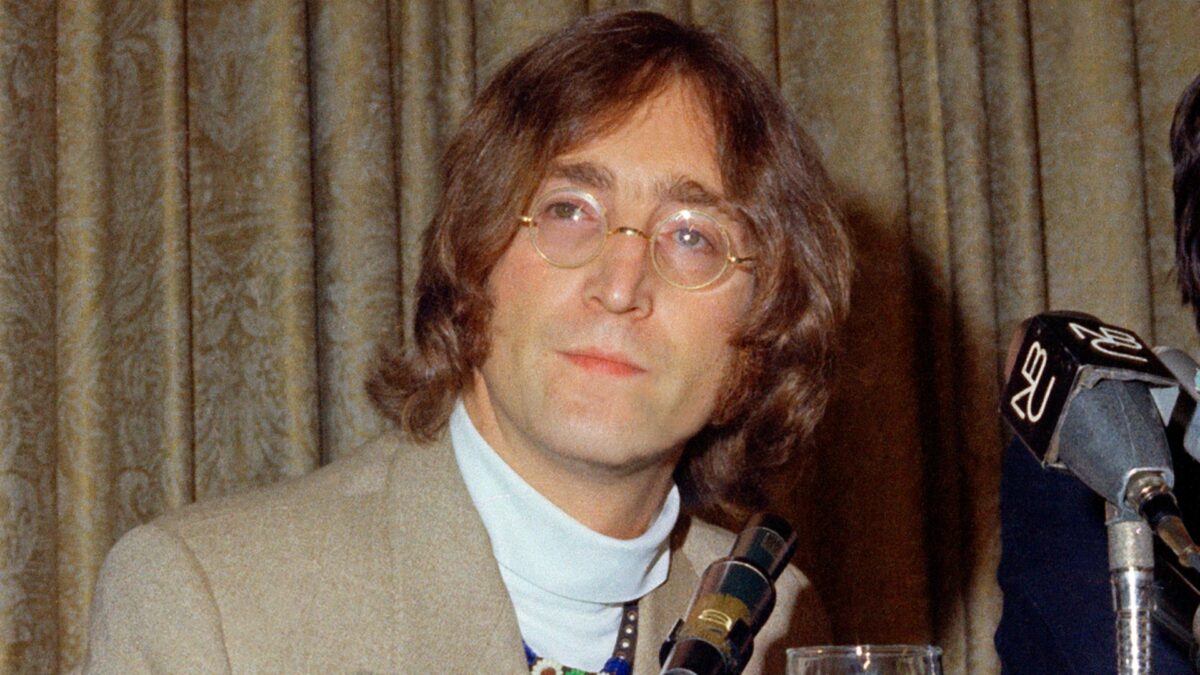The Whole Lennon Thing
“What’s left of Lennon today? After the baby boomer mythology, he remains perhaps the most significant popular musician of the 20th C. —admittedly, with the permission of Elvis and Zimmerman”

AP PhotoFile | AP
It’s forty years now since they killed John Lennon, which is how old Lennon was when he died. When I was a kid, John Lennon was the major absence in popular culture, just as Marilyn Monroe or Jimmy Hendrix had been before that, but this time the size of it was unheard of. We lived in a baby boomers’age in which the Beatles had been everything, a world forged in a melting pot of the sixties and its myths. To say Kurt Cobain, not to mention Ian Curtis or Amy Winehouse, doesn’t even come close. The baby boomers still took themselves seriously and they had real myths.
That was in the world of «culture», which is to say, as it is found in calendars and newspaper supplements. Because in music Lennon had become a white elephant even before he died, what is known in politics as a «Chinese vase». The weight of his leadership in the Beatles had been too much. McCartney carved out a new career for himself in the shadow of a mildly self-parodying band —«Wings, the band the Beatles could have been», as Alan Partridge said. Harrison hit it big with Bangladesh. Ringo devoted himself to having a good time, just like before.
Lennon, for his part, tried the shrill psychologism of the Plastic Ono Band and the essentialism of Rock ‘n’ Roll, for which reason many called him reactionary, and he had time to leave Yoko for May Pang and to disappear with Nilsson on a gigantic drinking spree. He went five years without making a record and he explained it in ‘Watching the Wheels’, which was published four months before they killed him. Along the way he left some of the worst songs of all time as well as manifestos like Working Class Hero, which still resonate today, maybe even more forcefully than they did in the world I grew up in. Under the banner of the most insufferable and inane universalizing proclamations, for which he continues to be remembered —see Pedro Sánchez’s tweet— the matter of class was central to Lennon.
A few years ago I went to Liverpool on the pretext of attending a concert, I wrote about it here, and I took advantage of the trip to visit several places of pilgrimage: Mendips, Strawberry Fields, Penny Lane. I crossed Menlove Avenue at approximately the same point where a driver with a learning permit ran over and killed Julia Stanley one evening on July 15th, 1958. It’s tempting to think that in this fact there is all you need to know about Lennon. In addition to his complicated relationship with social class: the boy John lived very comfortably with his Aunt Mimi and his Uncle George Toogood Smith —it’s all in a name— , who used to read him stories at night and who taught him to play with words. But he came from a broken home, and even though the family and local authorities forced Julia to give her sister custody of her child, she kept on being the light in his life until that evening in July. The young Lennon tread an almost imperceptible line between the very modest and mild manners of the McCartney family, who lived on the other side of Allerton Manor, and the financial straits, or hard knocks of real poverty, experienced by Harrison or Ringo. The tensions that nourish a creative spirit slip through those intersections in life. He wasn’t a fraud when he wrote Working Class Hero, as I thought for a long time—even if, as always, that wasn’t the whole story.
Those tensions also came out in less peaceful ways. Lennon was a man of violent impulses, contrary, once more, to the lay mythology that made him out to be a fully robed saint. (I still remember my friends’ indignation over a sketch that Rosa Montero did at the end of the 90s in which she described the other side of his character.) He was really into dope, while the Stones took all the credit, a fact which is today even funnier when you see how they have become a multinational company with Jagger as the CEO. What’s left of Lennon today? After the baby boomer mythology, he remains perhaps the most significant popular musician of the 20th C. —admittedly, with the permission of Elvis and Zimmerman, but he is also somebody you can keep listening to at this late date, more or less attentively, in all his sundry guises. And he is a personality who sums up a good share of the glory and the shortcomings of the minor white middle classes of this century. No small feat.
